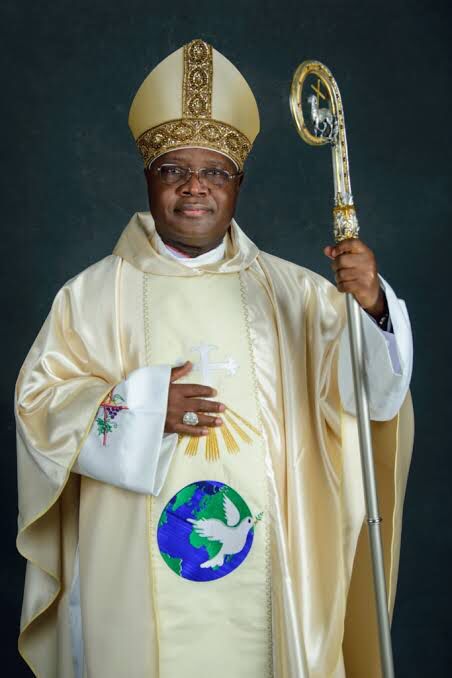Image source, Reuters
- Author, Drafting
- Role, BBC News World
Relations between Mexico and Ecuador have hit rock bottom.
The government of the Mexican president, Andrés Manuel López Obradordecided this Friday to break diplomatic relations with Ecuador, after a group of Ecuadorian police officers climbed the walls and fences of the Mexican embassy in Quito to enter the premises.
The operation sought capture former vice president Jorge Glasconvicted by the Ecuadorian justice system for corruption and who had been taking refuge in the Mexican embassy since December.
This is an unprecedented event that has been strongly criticized inside and outside Ecuador, but which the government of President Daniel Noboa justifies by ensuring that it is in defense of national sovereignty and to avoid foreign intervention in the internal affairs of his country.
“Ecuador is a sovereign country and we are not going to allow any criminal to go unpunished,” his government said in a statement.
In this article we summarize the diplomatic crisis facing the two Latin American countries.
1. The rise of tensions
Tensions rose rapidly after controversial statements made by the president on Wednesday Lopez Obrador in which he suggested that the assassination of the presidential candidate Fernando Villavicencio last year before the elections won by Noboa had influenced voting intentions.
In the middle of the electoral campaign, last August Villavicencio was shot dead at the exit of a rally in Quito by a group of armed men.
Image source, Getty Images
In response to AMLO’s comments, the Ecuadorian government declared on Thursday persona non grata to the ambassador of Mexico in Ecuador, Raquel Serur, and gave her a “short period” to leave the country.
On Friday, Mexico published a statement in which it described the Ecuadorian response as “disproportionate” and reported that Roberto Canseco – head of the Mexican consular mission in Ecuador – would remain in charge of the embassy, which would continue to “operate normally.”
In the same statement he stated that “after an exhaustive analysis” of the situation, The government of Mexico had decided to grant political asylum to former Vice President Glaswho had been taking refuge in the embassy since December 17 of last year.
After what happened at the embassy in Quito, Ecuador’s Foreign Minister, Gabriela Sommerfeld, said that granting diplomatic asylum to Glas was an “illicit act.”
2. Assault on the Mexican embassy
In the midst of a diplomatic impasse, Ecuador’s military and police began to surround the Mexican embassy in Quito on Friday afternoon.
The López Obrador government immediately rejected the increase in Ecuadorian police forces outside its embassy and He demanded that Ecuador respect its sovereignty and comply with its international obligations.
During the night, a group of Ecuadorian police officers broke into the facilities and captured Glas.
“Alicia Bárcena, our Secretary of Foreign Affairs, has just informed me that Ecuadorian police forcefully entered our embassy and took us into custody. to the former vice president of that country, who was a refugee and processing asylum due to the persecution and harassment he faced,” the Mexican president reported in his account on X.
“This is a flagrant violation of international law and the sovereignty of Mexico,” added the president.
The head of the Mexican consular mission in Ecuador, Canseco, was at the embassy when heavily armed Ecuadorian police They were trying to climb the walls of the enclosure.
In statements to the press, he said he hit his head on the ground and tried to prevent agents from entering the embassy.
“At the risk of my life I defended the honor and sovereignty of my country. This cannot be, “It’s incredible that something like this has happened.”he assured the media.
“I am very worried that they could kill him (Jorge Glas). There is no basis for doing this. We were about to leave and suddenly we ran into police officers, thieves who entered the embassy at night,” he added.
The chancellor of Ecuador stated before the press after what happened that the decision “was made in the face of a real risk of imminent flight of the citizen required by justice.”
And he added that “no criminal can be considered politically persecuted when he has been sentenced with an enforceable sentence and with an arrest warrant issued by the judicial authorities.”
3. Who is Jorge Glas
The political career of former vice president of Ecuador Jorge Glas Espinel – the man at the center of Mexico’s rupture in relations with Quito – is closely associated with a name: that of former president Rafael Correa.
Glas Espinel was born in 1969 in the city of Guayaquil, the second most important in the country. He graduated as an electrical engineer and although over the years he was linked to Correa in different political campaigns, he did not hold public office.
Image source, National Police of Ecuador via Getty Images
But that changed in January 2007, when Correa became president of Ecuadorand immediately called Glas to help him manage the country’s Solidarity Fund, an institution that sought to invest the profits generated by several public telephone and electricity companies in social projects.
That fund was liquidated by Glas himself in 2010.
Soon, both his closeness with the president and his management led him to other relevant public positions such as the Ministry of Telecommunications.
Since his first official position in 2007 as head of the Solidarity Fund of Correa’s first administration, Glas – 54 years old and an engineer by profession – began a meteoric career within the government and the circles of the former presidentwhich led him to accompany him in the presidential ticket in the 2013 campaign.
But it was also with his foray as Correa’s vice president that their problems with the law began.
After four years in office, in December 2017 Glas was sentenced to eight years in prison. prison for receiving bribes from the Brazilian construction company Odebrechtin a case that hit several governments in Latin America.
At that time Glas was acting as vice president of Lenín Moreno, who had been elected in May of that year to succeed Correa.
It was Moreno himself who confirmed, after a vote in the Ecuadorian parliament in January 2018, that Glas would no longer hold the position of vice president during his administration.
At that moment he surrendered to the authorities.
But after several court rulings and thanks to a writ of habeas corpus, Glas was granted parole on November 28, 2022, when he had served half of his sentence.
However, the judicial processes continued and The politician was summoned by justice at the end of 2023 to answer for another case of corruption associated with the management of funds after the earthquake that had occurred in the province of Manabí seven years earlier.
Glas then sought diplomatic refuge in the Mexican embassy.
4. International reactions
The invasion of the Ecuadorian police into the embassy aroused a unanimous reaction of rejection by the governments of the region and international organizations.
Several leaders expressed that this is a violation of international instruments that regulate diplomatic relations and the right to asylum.
The government of Nicaragua broke its diplomatic relations with Ecuador this Saturday in solidarity with Mexico in the face of events that it described as “unusual and reprehensible.”
Xiomara Castro de Zelaya, president of Honduras, wrote in her X account that the assault on the Mexican embassy “with the aim of kidnapping” Glas “constitutes an intolerable act for the international community.”
Castro repudiated what he considers a “violation of the sovereignty of the State Mexican and international law.
Image source, Getty Images
The secretary general of United NationsAntónio Guterres, was “alarmed” by what happened, as reported this Saturday in a statement.
Stéphane Dujarric, spokesman for Guterres, said: “Violation of this principle endangers the pursuit of normal international relations, which are fundamental to the advancement of cooperation between States.”
For his part, the president of Colombia, Gustavo Petrorejected the actions of the Ecuadorian government.
“The Vienna convention and Mexico’s sovereignty in Ecuador have been broken. I once again insist that Latin America and the Caribbean, whatever the social and political constructions in each country, must keep alive the precepts of international law in the midst of barbarism that advances in the world and the democratic pact within the continent,” the president wrote in X.
Later, the Organization of American States issued a statement in which it expressed its solidarity with the victims of “the inappropriate actions that affected the Mexican Embassy in Ecuador.” and urged the parties to peacefully resolve their differences.
5. The effects in Ecuador
The episode also provoked a strong reaction from the opposition to Daniel Noboa’s government. Correismo called for the president’s resignation.
“Mr. Daniel Noboa, present your resignation. “Ecuador is not your banana plantation.”the former presidential candidate expressed at a press conference. Luisa González. “The president’s inability to govern has been demonstrated,” he added.
The bench of the Correísta Citizen Revolution party, which is by far the largest in the Assembly with 51 legislators, declared itself in opposition to the Noboa government.
“We are not going to be complicit in an authoritarian and dictatorial government model,” said assembly member Viviana Veloz.
Veloz, who serves as first vice president of the Assembly, announced that the bench of his party will file impeachment requests against the Chancellor, the Minister of Government and the Minister of Defense for their “incapacity, negligence and irresponsibility.”
Until now, the Noboa government had maintained a legislative agreement with the Citizen Revolution bench that had allowed it to form the majorities necessary to approve some economic laws.
For its part, former Ecuadorian president Rafael Correa, who governed alongside Glas, He stated: “What the Noboa government has done is unprecedented in Latin American history.”
“Not even in the worst dictatorships has the embassy of a country been violated. We do not live in a State of law, but in a State of barbarism, with an improvised system that confuses the Homeland with one of its banana farms,” he added on the social network X.
Noboa is heir to an emporium that has banana exports among its businesses.
He also held the president responsible for the safety and physical and psychological integrity of Glas.
The mayor of Quito, Pabel Muñozdescribed what happened as “unacceptable” and “a global shame.”
But the government of Ecuador assures that defends national sovereignty without allowing anyone to intervene in the internal affairs of the country.
And remember that you can receive notifications in our app. Download the latest version and activate them.


Thank you, your article surprised me, there is such an excellent point of view. Thank you for sharing, I learned a lot.